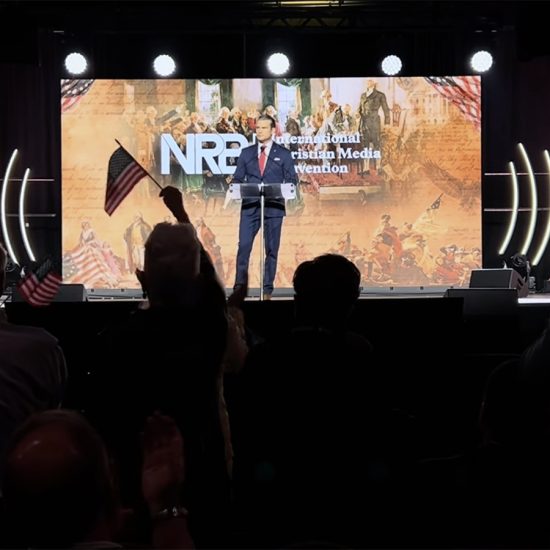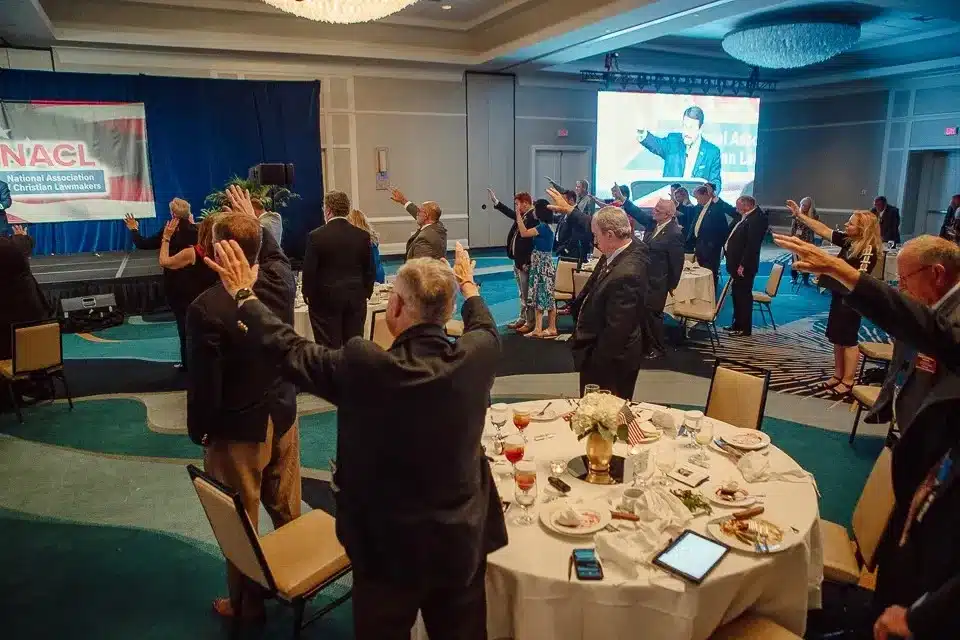

The National Association of Christian Lawmakers was founded in 2019 and now has members and supporters in all 50 states. The NACL and similar groups are capitalizing on the momentum of the reversal of Roe v. Wade to pursue what they describe as more biblically informed policy. (Photo courtesy of National Association of Christian Lawmakers)
LYNCHBURG, Va. — A collection of state legislators and local government officials from across the country gathered in southern Virginia this summer with one unifying purpose.
They’re members of the National Association of Christian Lawmakers, which in past years has distributed at least 15 pieces of model legislation to conservative lawmakers in various states — measures to ban abortion, restrict gender-affirming care, and condemn gay marriage.
The group’s goal is to change the social fabric of the country and return America to what it says are its Judeo-Christian origins, and members are capitalizing on the momentum that the long-sought end of Roe v. Wade has given them to pass their vision of biblically informed law.
Jason Rapert, a former Arkansas state senator, founded the group in 2019. He pushed for construction of a Ten Commandments monument at the Arkansas Statehouse and has relentlessly opposed gay marriage.
He describes the NACL as a place for lawmakers to debate, construct, and distribute model legislation from a “biblical worldview.”
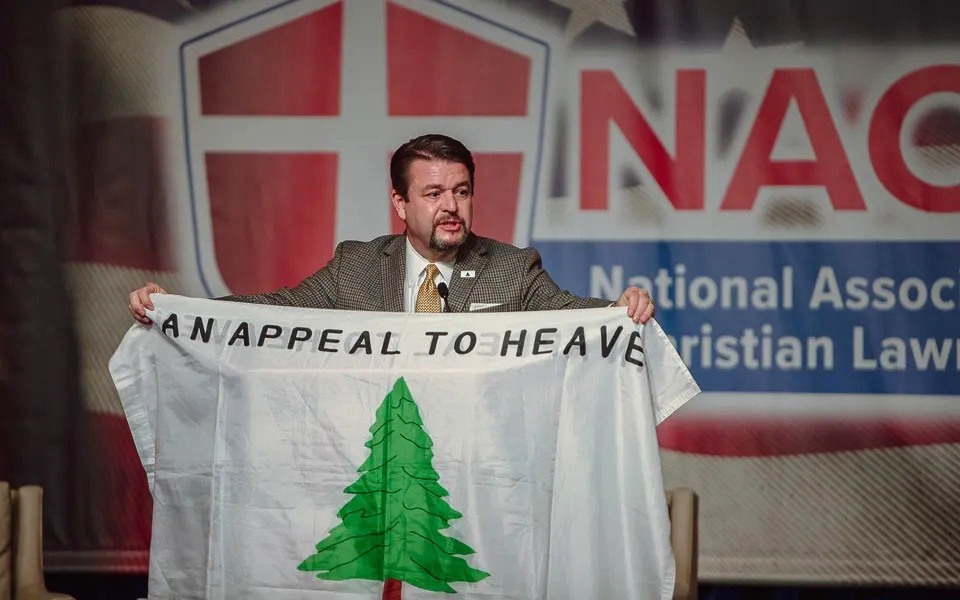
Former Arkansas state Sen. Jason Rapert founded the National Association of Christian Lawmakers. He describes the NACL as a place for lawmakers to debate, construct, and distribute model legislation from a “biblical worldview.” (Photo courtesy of National Association of Christian Lawmakers)
“We believe that with all the troubles facing our country, with Democrats and leftists that are advocating cutting penises off of little boys and breasts off of little girls, we have reached a level of debauchery and immorality that is at biblical proportions,” Rapert said in an interview with News21.
NACL members must sign a pledge voicing their opposition to gay marriage, affirming belief in life at conception, and endorsing the idea that Christianity shaped America and made it what it is today.
The nascent group is well-connected. Funders have donated hundreds of thousands of dollars to the effort, and Rapert has wooed U.S. congressional representatives, prominent lobbyists, and GOP officials to serve on his board of advisers and to speak at meetings.
The organization also receives funding from conservative legal powerhouses such as the Alliance Defending Freedom, First Liberty Institute, and similar outfits.
NACL members have advanced legislation at the forefront of America’s culture wars, from Florida’s “Don’t Say Gay” bill to South Carolina’s six-week abortion ban.
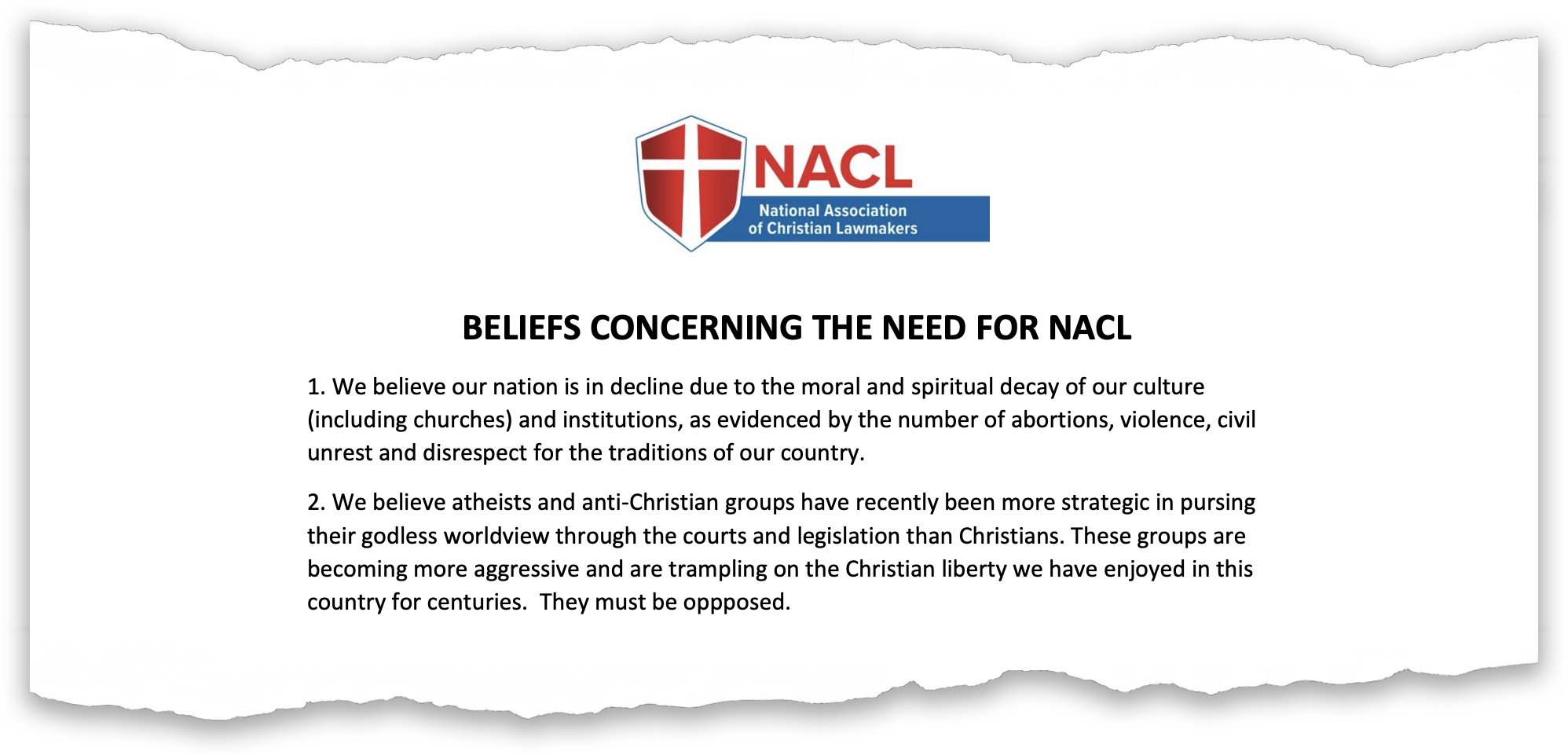
Texas’ 2021 abortion ban, which allows private citizens to sue providers and those assisting people seeking abortions, was sponsored by NACL member Sen. Bryan Hughes.
The National Association of Christian Lawmakers adopted that bill as model legislation. Seven of 12 similar bills introduced in statehouses across the country and reviewed by News21 were sponsored or co-sponsored by legislators who are now NACL members.
A myriad of special interest groups organize meetings for lawmakers and distribute model bills. But the NACL is unique in its scope.
Republican state Rep. John McCravy of South Carolina said he joined because of the organization’s focus on social issues such as abortion and gay marriage. At the core of McCravy’s beliefs is the idea that Christianity should be at the center of how the United States is governed.
“There’s nothing wrong with being a Christian in office,” he said. “There’s nothing wrong with taking values that are revered and applying them to government. … That was what all our laws are founded on anyway.”
But those ideas have been contested by people of faith and secular advocates who say specific religious beliefs shouldn’t govern all Americans. They’re also not popular with the broader American public, a majority of whom believe the government should enforce the separation between church and state, according to the Pew Research Center.

Anti-abortion protesters gather in Washington, D.C., on June 24, 2023, the first anniversary of the Supreme Court’s decision to reverse Roe v. Wade. The right-leaning court has delivered several rulings of late advancing Christian involvement in public life. (Photo by Trilce Estrada Olvera/News21)
Holly Hollman, general counsel of the Baptist Joint Committee for Religious Liberty, is one such critic.
“I think the idea that the government is the best to evangelize what we think religiously is a terrible idea,” she said. “Christians have had a great impact on the law in the history of America, but we’ve never been a Christian nation officially, legally.”
Hollman said making laws shaped by a legislator’s view of Christian values can be harmful for both the government and people of faith because it erodes the separation of church and state.
That phrase was popularized by Thomas Jefferson in a letter to the Danbury Baptist Association of Connecticut in 1802. He wrote that the establishment clause in the Constitution created a “wall of separation” between religion and government.
But for some, the separation of church and state doesn’t prohibit established religious beliefs from becoming law.
“It doesn’t say there’s a separation of church and state, there’s nothing in the U.S. Constitution that says that. A lot of people think there is, but there’s not,” McCravy said. “However, it does say that we are not to establish a state religion.”
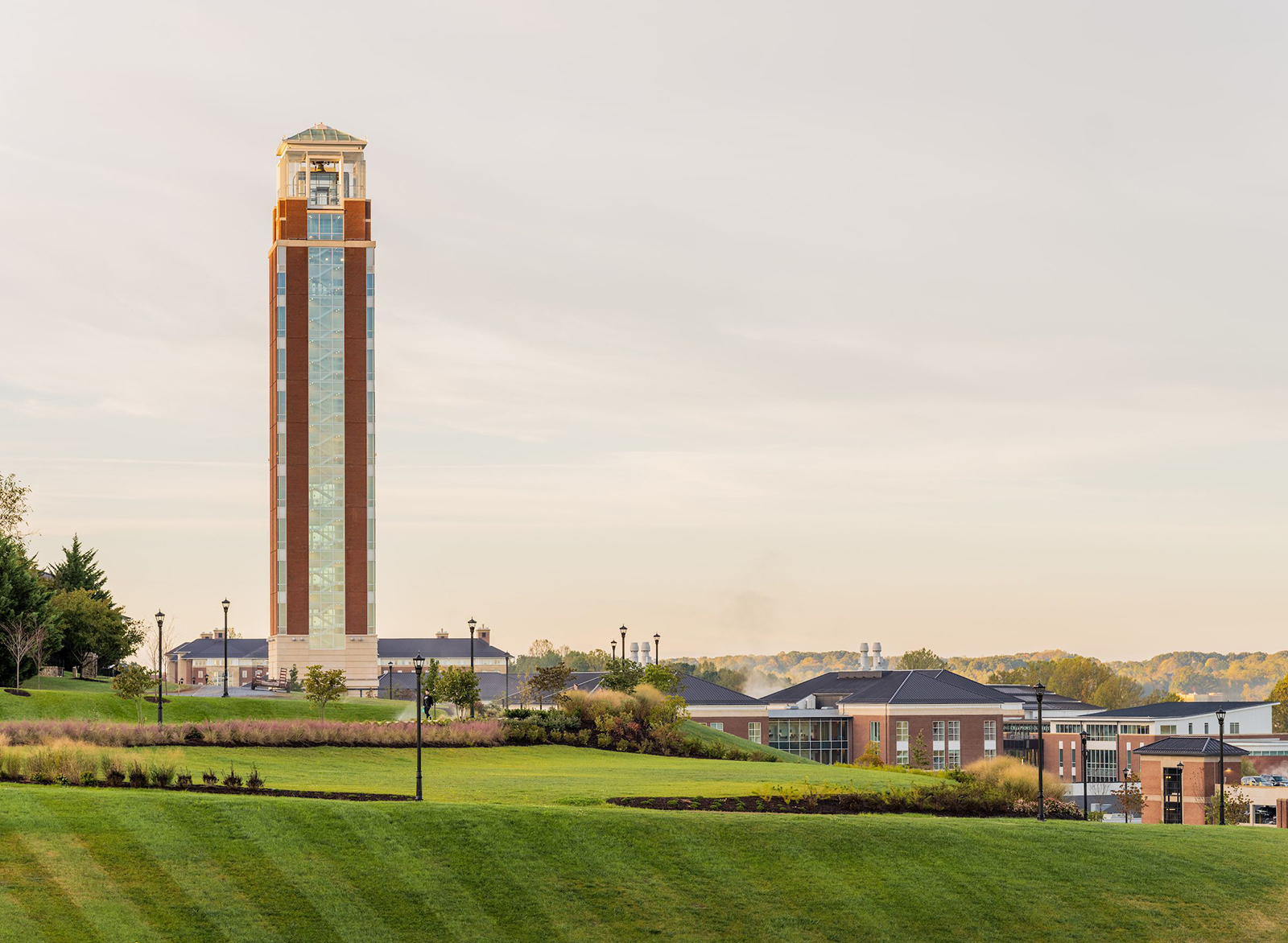
The National Association of Christian Lawmakers held its annual policy conference in June at Liberty University in Lynchburg, Va. The school was founded by the late Moral Majority founder Jerry Falwell to train, in the school’s words, “champions for Christ.” (Photo courtesy of Liberty University)
In June, the NACL held a national policy conference at Liberty University in Lynchburg, Virginia. Home to the late Moral Majority founder Jerry Falwell, the city is an important place for Christian conservatives.
Standing in front of a large sign with the phrase “In God We Trust” emblazoned across it, Rapert kicked off the livestreamed portion of the conference.
“Beginning tomorrow, you’re going to be engaging not only in policy discussion, my friends, you’re going to be engaging in spiritual battle,” he said.
Throughout the conference, lawmakers discussed and proposed modifications to a number of model bills and resolutions that would ban gender-affirming care, condemn gay marriage, and enshrine fetal personhood.
In all, the group approved eight new model bills. News21 requested copies of the measures from Rapert, but he did not respond.
Rapert said his group doesn’t track the effectiveness of its model bills, nor does it know the number of times they’ve been introduced in state legislatures.
The organization’s rise comes at a time when a right-leaning U.S. Supreme Court has delivered ruling after ruling advancing Christian influence in public life and limiting anti-discrimination laws.
These decisions have created an opportunity for religious conservatives to push toward incorporating more conservative Christian views into law, which members of the NACL hope to do nationwide.
Said Rapert: “We believe that America would be better served by Christians serving in public office at every level in the United States.”
This report is part of “America After Roe,” an examination of the impact of the reversal of Roe v. Wade on health care, culture, policy, and people, produced by Carnegie-Knight News21.


